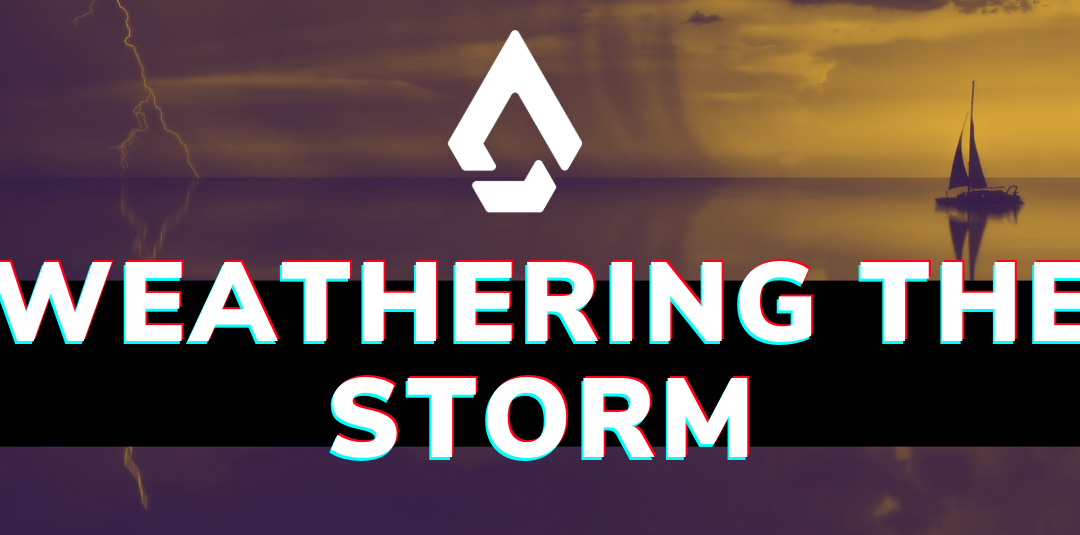
by soco_admin | Apr 9, 2025 | Communal Podcast, SOCO Members
Join us for an insightful discussion on navigating life’s obstacles, an unpacking of stress and how we’ve learned resilience through life’s bumps. We start with a light-hearted tale about modern communication mishaps, leading into a story about Greg’s mom’s car troubles that highlights the power of family and perseverance.
We also look at how mindset shapes our responses to adversity. From parenting and emotional intelligence to practicing discipline; we emphasize self-accountability, grit, and practical tools like journaling to face life head-on and grow stronger through its inevitable challenges.
And along the way, we explore why we love working with people that have been through some stuff and have come out on the other side stronger, more resilient and better humans. Buckle up for the storm!
Listen where you normally get your podcasts:
Or Listen Below:
Episode Chapters:
(0:00:05) – Navigating Stress and Problem Solving
(0:11:31) – Transforming Adversity
(0:21:54) – Building Resilience and Grit Through Experience
(0:30:22) – Navigating Growth and Self-Improvement
(0:38:16) – Reflecting on Resilience and Growth
(0:48:51) – Empowering Through Life’s Challenges
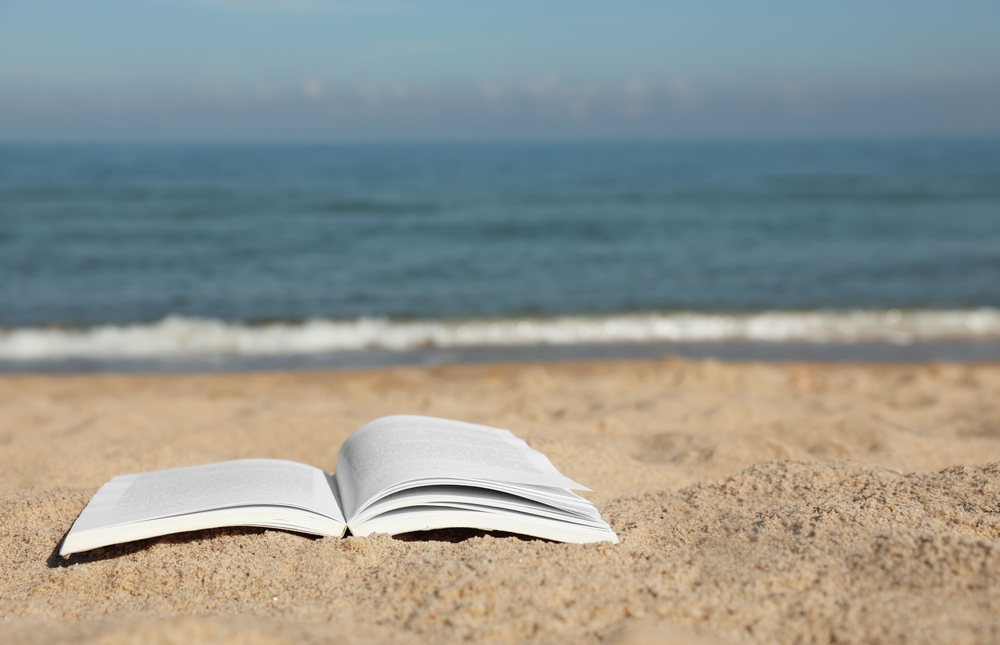
by soco_admin | Jun 19, 2024 | Featured, Good Stuff, Knowledge Bomb, News & Notes, Why We Hustle
10 Books That Can Help You Recharge, Reset and Exit Summer Ready to Conquer the World
Whitney Balish: Cruise Director, SOCO
What’s Your Plan This Summer? 💤 ☀️ 🏄
Travel? Relaxation? Working on those fitness goals? Sleeping for 2 months? You best have some personal growth in there!
Whatever your plans, summer is always an interesting time. The world slows down a little bit and we veer from our normal work, hustle and parenting routines (for those who know, you know). We see it over here at SOCO (and actually love it). But, the work, personal growth and improvement shouldn’t just stop.
This summer, we’d like to challenge you to invest in the idea that summer is also about personal growth for you. So, how can you keep moving forward, even when things slow down? With some great personal development books. We’ve picked out some winners that will help you make progress without feeling like you’re “reading a work book”. 🫠
10 Books With Our “Hot Take” On Their Value 🔥
We have some avid readers around here and we’re always looking to soak up some new knowledge that will help us do better work without sacrificing our personal time (or sanity). Each book below provides unique strategies to help recharge your mind, reset your routines, and approach the fall with renewed energy and purpose. These books are engaging, easy to read, and filled with valuable lessons that can be easily integrated into your daily life for you to start fall with your best foot forward.
by Brigid Schulte
Our Take: For when you are struggling with work life balance, a fun and funny read.
From Good Reads: Overwhelmed is a book about time pressure and modern life. It is a deeply reported and researched, honest and often hilarious journey from feeling that, as one character in the book said, time is like a “rabid lunatic” running naked and screaming as your life flies past you, to understanding the historical and cultural roots of the overwhelm, how worrying about all there is to do and the pressure of feeling like we’re never have enough time to do it all, or do it well, is “contaminating” our experience of time, how time pressure and stress is resculpting our brains and shaping our workplaces, our relationships and squeezing the space that the Greeks said was the point of living a Good Life: that elusive moment of peace called leisure.
#2: Drop the Ball: Achieving More by Doing Less
by Tiffany Dufu
Our Take: How to delegate and let some things go. You can achieve more by doing less. Drop The Ball is a must read.
From Good Reads: A bold and inspiring memoir and manifesto from a renowned voice in the women’s leadership movement who shows women how to cultivate the single skill they really need in order to thrive: the ability to let go.
by Elizabeth Gilbert
Our Take: Nurture your creativity and curiosity. Habits and processes for living your most creative life.
From Good Reads: Gilbert offers insights into the mysterious nature of inspiration in Big Magic. She asks us to embrace our curiosity and let go of needless suffering. She shows us how to tackle what we most love, and how to face down what we most fear. She discusses the attitudes, approaches, and habits we need in order to live our most creative lives. Balancing between soulful spirituality and cheerful pragmatism, Gilbert encourages us to uncover the “strange jewels” that are hidden within each of us. Whether we are looking to write a book, make art, find new ways to address challenges in our work, embark on a dream long deferred, or simply infuse our everyday lives with more mindfulness and passion, Big Magic cracks open a world of wonder and joy.
#4: Atomic Habits: An Easy & Proven Way to Build Good Habits & Break Bad Ones
by James Clear
Our Take: Our first SOCO book club pick! Members of our community including myself loved the framework this provides to make small positive changes with a big impact.
From Good Reads: No matter your goals, Atomic Habits offers a proven framework for improving—every day. James Clear, one of the world’s leading experts on habit formation, reveals practical strategies that will teach you exactly how to form good habits, break bad ones, and master the tiny behaviors that lead to remarkable results.
#5: Essentialism: The Disciplined Pursuit of Less
by Greg McKeown
Our Take: Declutter your mind and focus on what really matters. We liked this so much, we did a Communal Podcast on the subject.
From Good Reads: The Way of the Essentialist isn’t about getting more done in less time. It’s about getting only the right things done. It is not a time management strategy, or a productivity technique. It is a systematic discipline for discerning what is absolutely essential, then eliminating everything that is not, so we can make the highest possible contribution towards the things that really matter.
#6: Deep Work: Rules for Focused Success in a Distracted World
by Cal Newport
Our Take: Being able to focus without distraction? This isn’t just a skill it is a super power.
From Good Reads: One of the most valuable skills in our economy is becoming increasingly rare. If you master this skill, you’ll achieve extraordinary results.
Deep work is the ability to focus without distraction on a cognitively demanding task. It’s a skill that allows you to quickly master complicated information and produce better results in less time. Deep work will make you better at what you do and provide the sense of true fulfillment that comes from craftsmanship. In short, deep work is like a super power in our increasingly competitive twenty-first century economy. And yet, most people have lost the ability to go deep-spending their days instead in a frantic blur of e-mail and social media, not even realizing there’s a better way.
by Stephen R Covey
Our Take: It is a classic for a reason. If you haven’t read this yet consider it your sign to do so. This books breaks down the 7 principles for being your best self and some of the smartest people we know swear by this book.
From Good Reads: When Stephen Covey first released The Seven Habits of Highly Effective People, the book became an instant rage because people suddenly got up and took notice that their lives were headed off in the wrong direction; and more than that, they realized that there were so many simple things they could do in order to navigate their life correctly. This book was wonderful education for people, education in how to live life effectively and get closer to the ideal of being a ‘success’ in life.
#8: Rest: Why You Get More Done When You Work Less
by Alex Soojung-Kim Pang
Our Take: With science and insights, rest is work too and you NEED it (and Rest is the book you’ve been missing).
From Good Reads: Overwork is the new normal. Rest is something to do when the important things are done-but they are never done. Looking at different forms of rest, from sleep to vacation, Silicon Valley futurist and business consultant Alex Soojung-Kim Pang dispels the myth that the harder we work the better the outcome. He combines rigorous scientific research with a rich array of examples of writers, painters, and thinkers—from Darwin to Stephen King—to challenge our tendency to see work and relaxation as antithetical. “Deliberate rest,” as Pang calls it, is the true key to productivity, and will give us more energy, sharper ideas, and a better life. Rest offers a roadmap to rediscovering the importance of rest in our lives, and a convincing argument that we need to relax more if we actually want to get more done.
by Gretchen Rubin
Our Take: Life is short and you need to focus on what really matters. This book focuses on the author’s experiences with happiness and offers advice on how to be your happiest self. And let’s face it…with the complexities of life, work, family, kids and the greater world…we could all use a little more.
From Good Reads: Gretchen Rubin had an epiphany one rainy afternoon in the unlikeliest of places: a city bus. “The days are long, but the years are short,” she realized. “Time is passing, and I’m not focusing enough on the things that really matter.” In that moment, she decided to dedicate a year to her happiness project.
#10: Quiet: The Power of Introverts in a World That Can’t Stop Talking
by Susan Cain
Our Take: Greetings from your resident introvert! There are actually a lot of us and actually a lot of advantages to being one. 😂
From Good Reads:
At least one-third of the people we know are introverts. They are the ones who prefer listening to speaking; who innovate and create but dislike self-promotion; who favor working on their own over working in teams. It is to introverts—Rosa Parks, Chopin, Dr. Seuss, Steve Wozniak—that we owe many of the great contributions to society.
In Quiet, Susan Cain argues that we dramatically undervalue introverts and shows how much we lose in doing so. She charts the rise of the Extrovert Ideal throughout the twentieth century and explores how deeply it has come to permeate our culture. She also introduces us to successful introverts—from a witty, high-octane public speaker who recharges in solitude after his talks, to a record-breaking salesman who quietly taps into the power of questions. Passionately argued, superbly researched, and filled with indelible stories of real people, Quiet has the power to permanently change how we see introverts and, equally important, how they see themselves.
In Conclusion
Summer is a time to slow it down, but also to catch up on some of the “work” we all need to do to show up in our jobs, for our families and our community. So, pick three of these books that resonate with you and where you are on the journey and read one per month. You owe it to yourself to hit that reset button whilst sipping a pina colada by your inflatable pool. 🏖️
Speaking of Happiness ✨
While we’re on the subject of happiness, doing your best work and generally being a bad-assed human…we think you should come find your happy (work) place with us at SOCO. We work really hard to create great workspaces filled with excellent, kind humans, chock-full of amenities like blazing wifi, bottomless coffee/tea and well appointed meeting rooms. We have coworking, fixed desk and private office options. Hell. You can just come for a day or book a meeting room for that next creative sesh. Come check us out and see if you don’t do better work here.
About The Author
Whitney Balish is a Columbia, SC native and the “Cruise Director” over here at SOCO, responsible for marketing, business development and member services. She’s a self-identified introvert and bibliophile, reading nearly 60 books a year. When she’s not crushing the pages, she’s busy creating great community over here at SOCO and finding ways to help our members win.
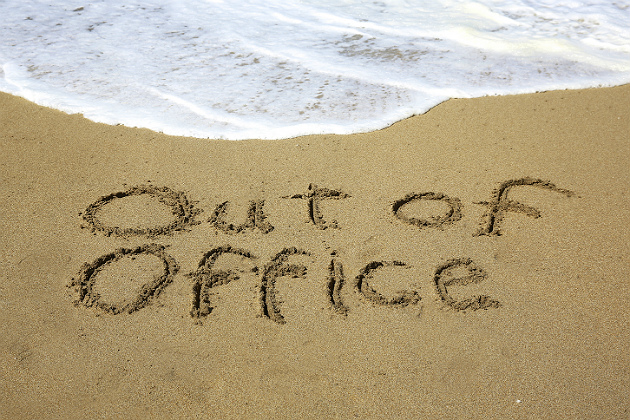
by soco_admin | Jun 7, 2024 | Featured, Good Stuff, Knowledge Bomb, News & Notes, Why We Hustle
How I take time off as a solopreneur without crying or getting fired by all my clients
Guest Post by Ben Culbreth, Culbreth Copywriting
Flexibility. The Great Entrepreneurial Myth? Maybe
Time off. Flexibility. Work wherever you want. Travel.
These are the things we, the freelancers and solopreneurs, believe we’ll bask in when we embark on this journey. Then it happens. You’re halfway through the summer, scrolling on Instagram and you see all your 9-to-5 friends on a vacation. They’re having a great time. No laptop in sight.
Meanwhile, the last vacation you took caused even more work because your Airbnb’s spotty WiFi constantly disconnected. You lost time on projects you said “wouldn’t take much time,” and we all know how that goes. So, you came back less rested and refreshed than you were before.
My friends, there’s a bit of a problem with taking time off in this country. And maybe no one struggles with the eternal battle of actually enjoying the perks of not having a PTO plan more than those who are in the business of themselves.
5 Strategies To Take Time Off That You Can Do 🔥
Let’s go through some ways that I’ve taken time off without curling up in the fetal position when I return to work. Am I the leading expert on how to take vacations as a solopreneur? Maybe. I’m still waiting for LinkedIn to get back to me. But until then, just know I don’t have this all down to a science.
Some of these things may work great for you. Some won’t. But the only way to find out is by giving this time off thing the old college try. And when you look back, I have a sneaking suspicion you won’t say be upset about taking more time off.
#1: Build your boundaries ⛔
Before I could start taking time off without dragging my laptop around, I had to learn why it’s important to set really solid boundaries with clients.
I used to take on last-minute projects or respond to requests right away. Not only is this not a great way to run a business, but it’s exhausting and sets the expectation with clients that you’re always available.
Then, it’s a shock to them when you suddenly go on vacation and don’t respond. That’s a them problem, but it’s a you (and me) problem, too. If you give them the idea that you’re available even when you’re off or never off, they will treat you as such.
Even when I’m not on vacation or off work, I still focus on these boundaries. So, I:
- Rarely reply to emails right away, and I push back on last-minute requests (those go away pretty quickly when “No” becomes a regular part of your business buzzwords).
- Don’t respond to emails at night or after hours.
- Stopped taking on last-minute requests and plan projects much further in advance.
If you’re like me, you might think about what could happen if stop doing these things. What if you miss an important email at 9:30 PM? (hint: you won’t).
Once you start enforcing boundaries, people, including you, tend to respect them.
#2a: Plan way, way ahead 🗓️
My vacation time is a little easier because I’m married to a teacher. The dates we travel are well defined and planned over a year in advance by the fine folks at the school district.
That’s mostly good because it means we’re often on vacation at the same time as everyone else.
But if you’re like me and have monthly retainer clients with a set list of deliverables every month, you’re probably wondering if you need to pack your laptop to keep everything moving and get paid.
I did that at one point. It wasn’t fun.
Now, I do all the work at the end of the vacation. My clients (and I imagine most of yours) are fine with this. If I’m going to be away for two weeks or more, I let customers know at least two months in advance.
I also bring them a plan for how the work will get done. I think that’s the most important part of effectively taking time off. For one thing, it helps you know exactly what needs to be done. It also communicates to your client that you’re thinking about what they need and taking the planning off their plate.
#2b: Be Really Clear. Clarity is Kindness 📣
When I went to Europe last summer, I contacted my retainer clients and told them what was happening. I let them know the dates that I’d be off from work. I made sure that they all understood what was going on, how it would impact them, what they could/could not expect and had a chance to process. And this next part is very important, so read it very carefully.
I told them I would have no access to email. No matter how hard they tried, they would not be able to reach me (gasp!).
Then, I outlined the deliverables due while I was gone. I provided an updated timeline of when I’d deliver the work and allowed enough time for feedback and edits before I left.
I got zero pushback on this plan. Was it a lot of work before the trip? Yes. But it meant I could relax in my coach seat on the flight and not worry about getting things done or what days I would need to work while we were away.
And I cannot understate how different a mindset this is compared to a working vacation.
#3: Delete your email (or go somewhere it won’t work) ❌
One of my toxic traits is that I’m very tempted to check my email. Gen Z automatically clicks TikTok when they’re on their phone; I click on Outlook.
It’s a habit I’ve slowly broken over the years, but it still has a strong hold on me. It’s like I crave the horror and nightmares that lurk in my inbox.
So, if I really want to unplug, I just delete the app. When it’s gone, the temptation to check it disappears, too. Problem solved. Plus, I’ve never come back to any horror or nightmares after doing this.
If you’re like one co-founder of SOCO and podcast host of Communal and deleting your email app is just not an option, consider going somewhere remote enough that no matter how many times you click refresh, you’ll never get those messages.
And pack bear spray, please.
#4: Plan for coming back to work 😿 vs 😺
This is a more challenging step because there’s enough work to do before you leave, much less planning for when you return.
But planning for what you’ll need to do when you return is just as important, maybe more so, than the pre-planning. I could have done this better on my last big vacation.
The tricky part about being a service-based solopreneur is for the most part, if we’re not working the business isn’t working.
So, when you take time off, the work stops but so does the marketing, business development, administrative work, you get the idea. Reach out to your existing clients before you leave and ask them what they’ll be working on when you return. Find out where they need support.
And tell your network about your time off and that you’ll be available for work when you return.
#5: Pick your Battles 🪖
Just about every entrepreneur has experienced the ebbs and flows of new projects and clients. So, at some point, you’ll probably find yourself in a season when you may need to work a bit while on vacation.
I know, I know; before you start calling me a hypocrite, hear me out.
Working on vacation doesn’t mean working the whole time. And it shouldn’t mean answering emails or doing low-value work.
Pick a time when you can work that still allows you to spend time with your family or whoever you’re with. Be intentional about what you do. Don’t fill those few short work hours with meaningless tasks you could do anytime.
Focus on high-value work that will actually benefit your business. Make the sacrifice of being a little plugged in worth it to you and the people who matter.
It’s that easy
Ha. I wish.
I still don’t have all this stuff figured out. And I still struggle to step away from work sometimes. If boundaries and real, unplugged vacations are a new thing, give yourself some grace. It’ll take a bit to figure out what’s best for you and you’ll learn how to do these things.
Now, go, thrive on your time off, and revel in the glory of a laptop left shut and an inbox unopened.
Need a Little More Inspiration? ✨
Need some more inspiration to throw your phone in the ocean? Check out Gene, Greg and Ben’s conversation on The Communal Podcast on this very topic. Fun, funny and full of good insights that might help YOU if you’re struggling to figure out why and how to do this elusive thing called “Time Off”.
About The Author
Ben Culbreth is a content strategist and copywriter and the only one who shows up for work at Culbreth Copywriting LLC. He helps folks develop branding and content strategies and writes copy for websites, emails, and customer stories. He lives in South Carolina. He’s been an active and passionate member of the SOCO Community. You can read his words and see his work at benjaminculbreth.com.
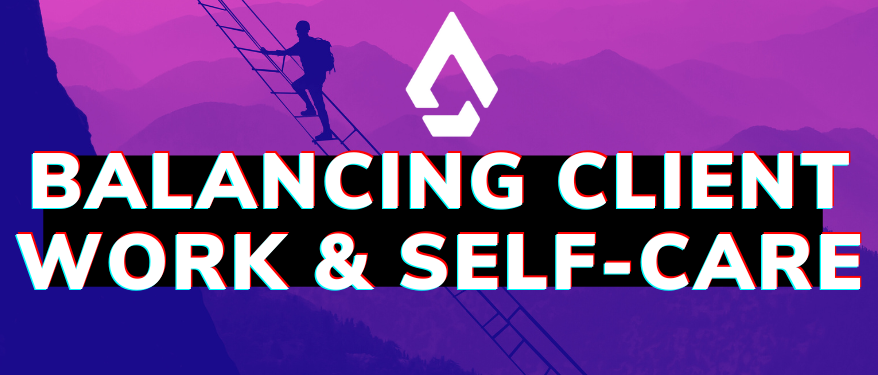
by soco_admin | Jun 3, 2024 | Communal Podcast
Are you a freelancer or Solopreneur struggling to juggle client demands with the ever-elusive concept of self-care? Well, you’re not alone!
In this episode we delve deep into the world of freelance freedom and the art of finding that sweet spot between professional growth and personal well-being.
Ben is a content strategist and copywriter and the only one who shows up for work at Culbreth Copywriting LLC. He helps folks develop branding and content strategies and writes copy for websites, emails, and customer stories. He lives in South Carolina. You can read his words and see his work at benjaminculbreth.com.
We’ll cover:
- The emotional journey of entrepreneurship
- The significance of support systems during tough times
- Effective time management and setting boundaries
- Planning for success while embracing the importance of downtime
Don’t miss out on this insightful conversation that’s bound to resonate with entrepreneurs and freelancers alike. It’s not just about working smarter, but also about living fuller.
Check it out to gain valuable insights that will empower you to strike the perfect balance in your work and life!
Listen where you normally get your podcasts:
Or Listen Below:
Episode Chapters:
(00:09) Solopreneurship Journey
(05:59) Entrepreneurship Journey and Mindset
(15:45) Entrepreneurship Journey and Challenges
(27:36) Time Off for Business Owner
(34:18) Balancing Work and Vacation
(41:39) Work-Life Balance and Time Management
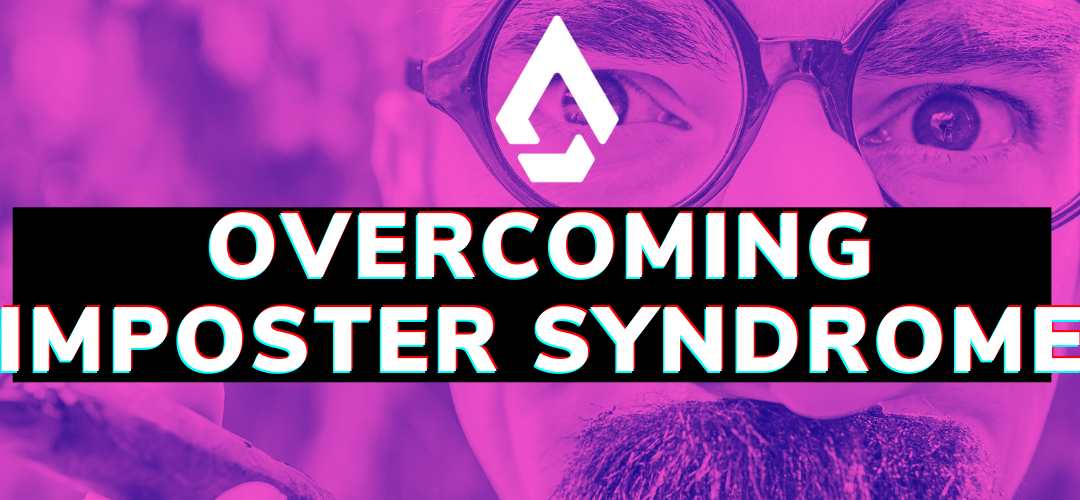
by soco_admin | Apr 19, 2024 | Communal Podcast
In this episode, we explore imposter syndrome, a common feeling that can make us doubt our accomplishments. We share personal experiences and offer strategies for overcoming self-doubt and battling our inner critics. We discuss how social media and comparing ourselves to others can distort our achievements, but also offer tips for managing these feelings. We draw inspiration from business and martial arts experiences to highlight the importance of measuring success by our own standards. Additionally, we discuss how to confront insecurities and manage emotions, referencing insights from thought leaders like Gary Vaynerchuk, etc… We touch on topics such as artistic integrity, pricing strategies, and maintaining personal and professional integrity in business. Emphasizing the value of authentic relationships, we discuss how they can boost confidence and help overcome imposter syndrome. Join us on this journey of self-discovery and growth as we shed light on our struggles and victories.
Listen where you normally get your podcasts:
Or Listen Below:
Episode Chapters:
(0:00:01) – Understanding Imposter Syndrome
(0:09:48) – Overcoming Imposter Syndrome Through Vulnerability
(0:21:04) – Imposter Syndrome and Self-Doubt Symptoms
(0:24:38) – Negative Self-Talk and Learning From Mistakes
(0:27:00) – Types of Imposter Syndrome
(0:35:19) – Imposter Syndrome and Pricing Struggles
(0:42:33) – Overcoming Imposter Syndrome and Achieving Integrity
(0:49:36) – Overcoming Imposter Syndrome in Business
(1:01:24) – Building Authentic Relationships and Confidence





